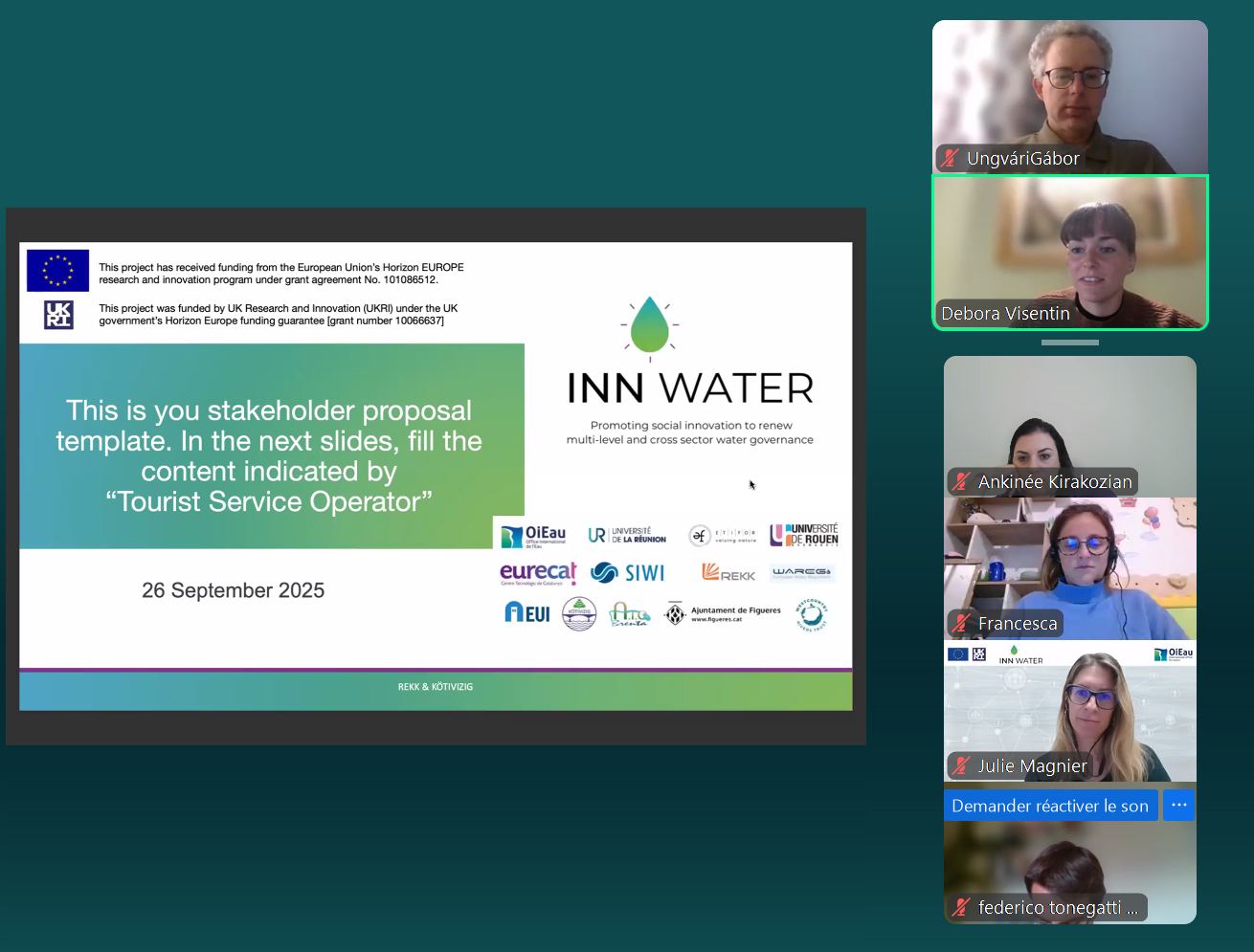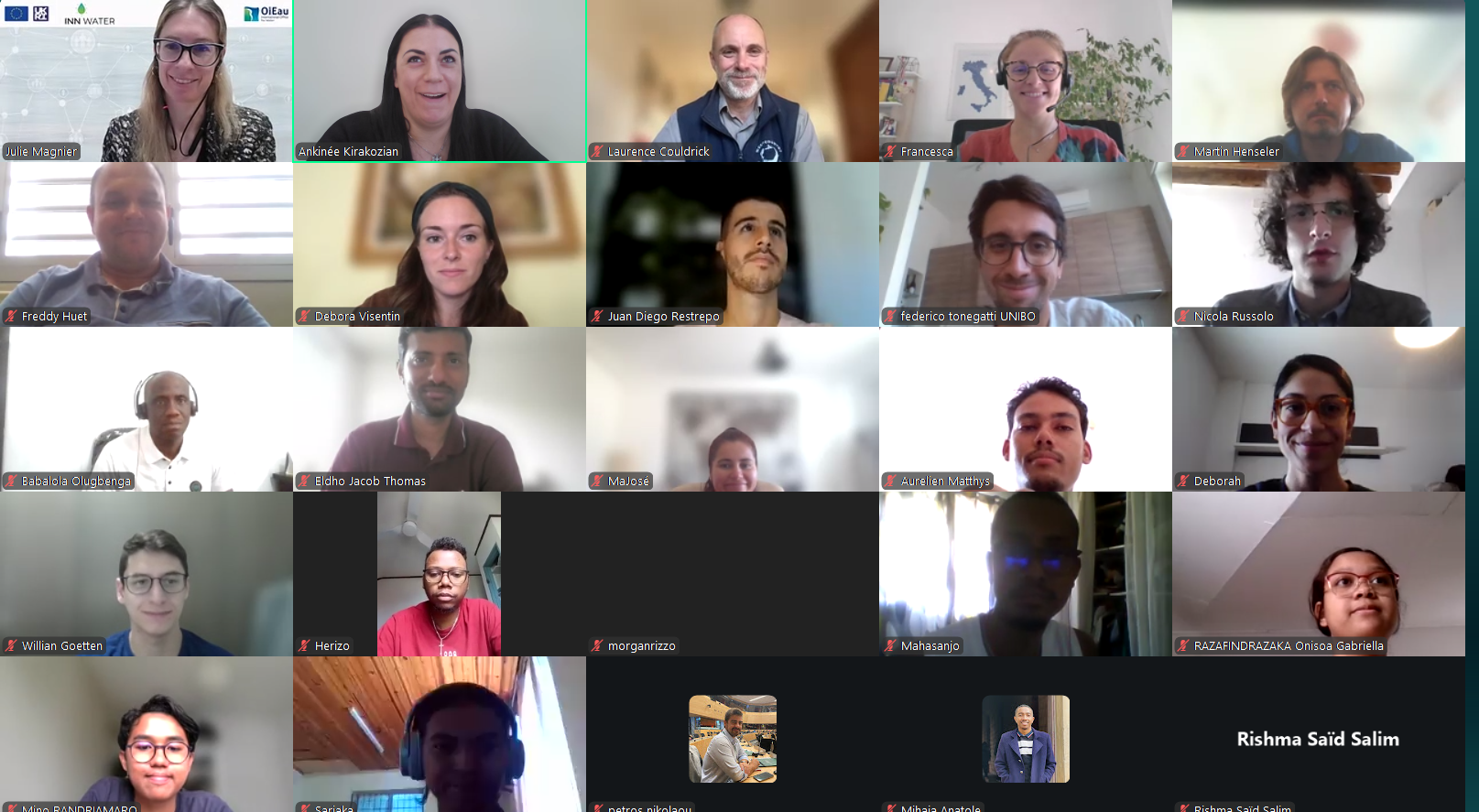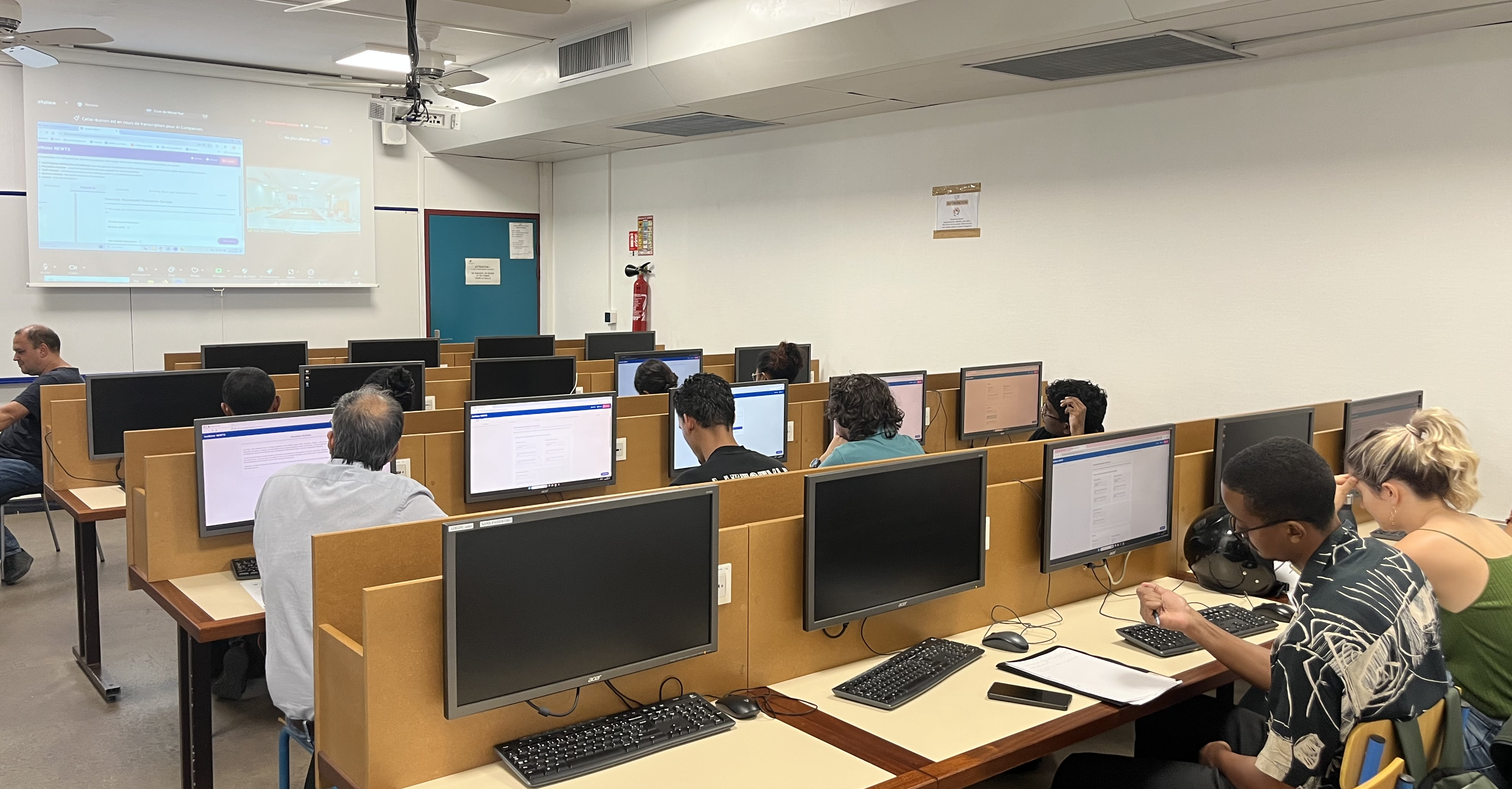
End of September, InnWater organized a Summer School bringing together students, researchers, and water managers from across Europe for an immersive, hands-on learning experience, exploring how scientific insight and practical action can shape better water governance for the future.
Day 1 – Exploring the Challenges of Water Governance
The Summer School opened with an in-depth look at the main challenges of water governance across Europe. Participants examined key issues through the lens of InnWater’s pilot projects. The morning sessions introduced the project’s analytical tools, which help design policies for sustainability and equitable resource use.
In the afternoon, attention turned to economic modeling, focusing on Computable General Equilibrium (CGE) models used for simulation and policy design. The day concluded with lively discussions on how economics can support data-driven decision-making for water systems under stress.

Day 2 – From Models to Action
The second day deepened the learning experience with hands-on sessions on microsimulation models—dynamic tools developed within InnWater to support decision-making in complex water systems.
Participants then split into two groups: one onsite in La Réunion, applying microsimulation to local contexts, and one online, addressing water scarcity challenges in Hungary.
Key insights from the day included:
-
Water governance is a shared responsibility, involving communities, managers, and decision-makers alike.
-
Inclusive participation and accessibility of knowledge are vital for effective governance.
-
Engagement works best when institutions meet people where they are—fostering trust and co-creation.
-
Economic tools empower collective, informed choices about water management.
Onsite session: a Serious Game
-
Held at the Université de La Réunion, the onsite session introduced participants to the InnWater–NEWTS–La Réunion micro-simulation model, developed by the CEMOI team. Through an engaging Serious Game, participants stepped into the shoes of water operators tasked with designing a progressive water pricing system that:
-
Reduces consumption by 10%
-
Ensures affordability for all (in line with SDG 6)
-
Maintains the financial stability of the water service
-
The interactive format encouraged real-world problem-solving, teamwork, and creativity. A round of applause went to the three winning teams, each celebrated with a certificate - and a sweet box of chocolates to mark their achievement!

The day closed by weaving together themes of technology, governance, economics, and capacity building, all central to InnWater’s mission of social innovation.
The Summer School didn’t just teach theory - it empowered future leaders to turn knowledge into action, fostering collaboration, innovation, and real-world impact in water management.